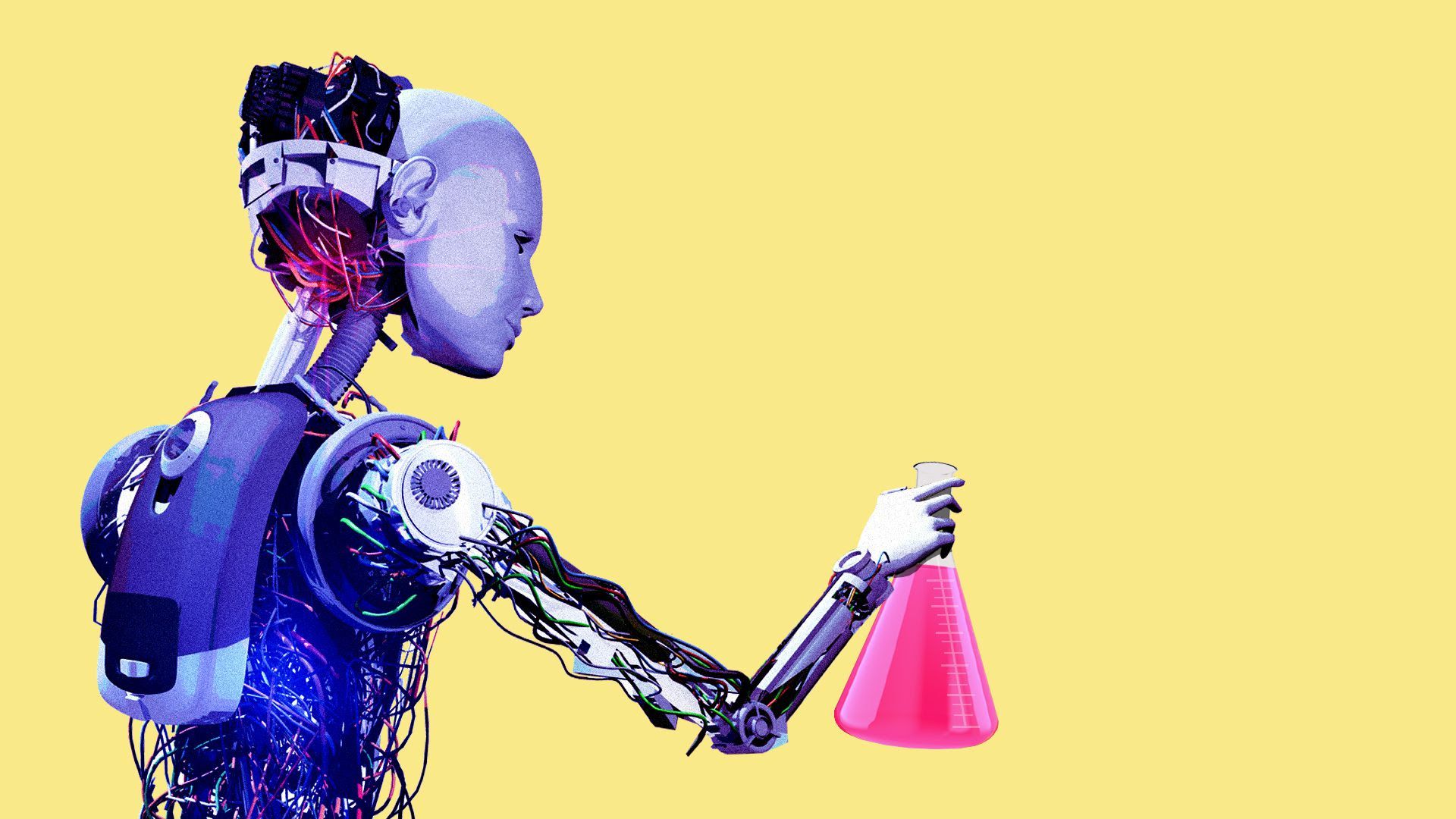A center for shaping new technology
Add Axios as your preferred source to
see more of our stories on Google.

Illustration: Sarah Grillo/Axios
On March 11, the Atlantic Council launched the GeoTech Center, a new think tank that will focus on the social impact of emerging technologies like AI, synthetic biology, personalized medicine and more.
Why it matters: How these technologies develop in the years ahead will have enormous impacts on society. The experts behind the GeoTech Center believe the government, the private sector and the public need to take an active role in understanding and shaping the use of "technology for good."
I spoke with David Bray, a technologist who will be running the new center. A quick excerpt of our conversation follows:
What's your aim for the center?
The hope here is that we can understand how these technologies are changing the nation, and define what we mean when we say "technology for good."
What are some of the downsides you see from emerging technology?
Technology by itself won't inherently strengthen open and pluralistic societies. It may disproportionately be advantageous to more autocratic societies. We want to figure out how to engage policymakers and private sector leaders to try to ensure that technology can benefit open societies like ours.
How will the ongoing COVID-19 pandemic influence your work?
I'm hoping this helps us realize that we need to work across sectors and partisan divides. We don't want this outbreak to demonstrate that it's better to be living in a more heavily surveilled state than in a more open one.
The bottom line: Technology isn't neutral, and active choices will help shape new advances in a way that serves democratic values.
Go deeper: Coronavirus dents tech's supply chain
